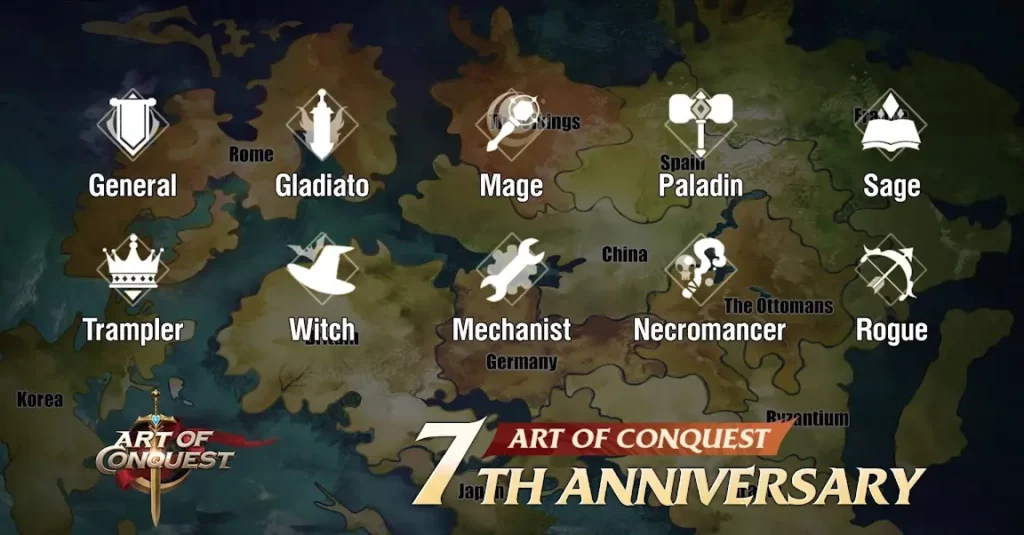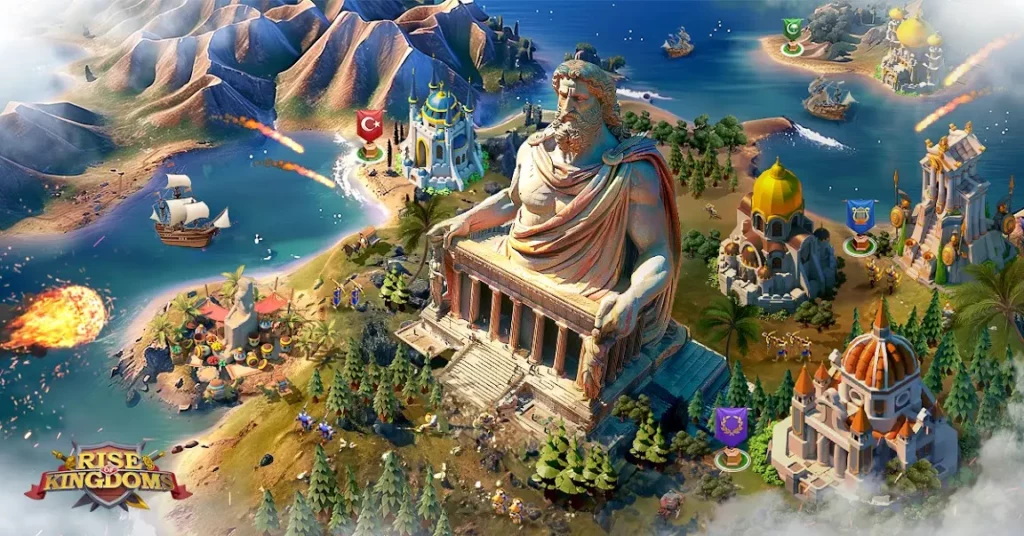In today's mobile gaming market, Simulation Strategy Game (SLG) have gained immense popularity due to their deep strategic gameplay and immersive experiences. Whether turn-based or real-time, simulation strategy games challenge players to manage resources and make tactical decisions to achieve victory. As simulation strategy games continue to evolve, developing effective ad strategies to attract potential players has become crucial for game developers. In this article, we will explore the different types of simulation strategy games, their target audience, and share successful advertising strategies and case studies to help developers promote their games more effectively.
What is Simulation Strategy Game?
Simulation Strategy Game, a genre that emphasizes strategic planning and tactical execution, often incorporating elements of resource management, tactical combat, and logistical organization. Players typically need to make decisions regarding resource allocation, military tactics, and economic development to achieve objectives in the game.
Simulation strategy games often require a high level of critical thinking and foresight, as players must anticipate and counteract the moves of their opponents. These games can be either turn-based, where players alternate turns to make moves, or real-time, where all actions occur continuously. Examples of popular simulation strategy games include the "Civilization" series, where players build and manage their own empires, and "StarCraft," which combines real-time strategy with a science fiction setting.

Types of Simulation Strategy Games
- SLG (Strategy War Games): Traditional simulation strategy games focus on military strategy and tactics within a war context. Players manage resources, build bases, and command armies to conquer territories and defeat enemies. Gameplay can vary from turn-based to real-time decision-making. Notable examples include Clash of Clans and Game of War.
- Turn-based Strategy (TBS): Players take turns to make strategic decisions, often on a grid map. Famous titles include Civilization and XCOM.
- Real-time Strategy (RTS): Unlike turn-based, these games require players to make decisions in real time, managing resources and units simultaneously. Examples are StarCraft and Age of Empires.
- 4X Games (Explore, Expand, Exploit, Exterminate): These are vast, complex games that focus on empire-building and management. Titles like Stellaris and Endless Legend belong to this category.
- MOBA (Multiplayer Online Battle Arena): Players control a single character as part of a team competing against another team of players. The goal is typically to destroy a central structure guarded by the opposing team, using a combination of strategy, teamwork, and character skills. Popular titles include League of Legends and Dota 2.

Certainly, in addition to the common types of simulation strategy games , simulation strategy games can also be combined with other niche genres such as merging, idle gameplay, and tower defense to create high-quality differentiated products. You can select the strategy category on BigSpy's Gaming app version to explore more types of simulation strategy games .
Best Mobile Simulation Strategy Games
- Rise of Kingdoms: This is a real-time strategy game where players build and develop their own city while commanding troops in battle. The game offers a selection of different civilizations and features real-time combat and resource management.
- Clash of Clans: A very popular strategy game, players must build their village, recruit troops, and gain resources by attacking other players while also defending against incoming attacks.
- Lords Mobile: Combining strategic planning with real-time battle elements, players are tasked with building an empire, developing its economy and military, and battling other players.
- State of Survival: Set in a zombie apocalypse, this survival strategy game requires players to survive in a world overrun by zombies. Players must build shelters, recruit survivors, and fend off zombies and other threats.
Who Plays Simulation Strategy Games?
Simulation strategy games often attract players who enjoy deep strategic gameplay and long-term planning. Due to their complex nature, these games have a relatively high entry barrier, requiring players to invest significant time to understand and appreciate the core mechanics. This can be challenging for new players, who may struggle to grasp how to play or see quick achievements. Consequently, simulation strategy games are typically favored by more experienced gamers or those who are committed to mastering intricate game systems over time.
Simulation Strategy Game Ad Strategy and Case Study
Simulation strategy games often have longer play sessions and require more commitment than casual games, so their ad strategies must reflect this depth.
Ad Strategy
- Gameplay-focused Ads: These ads showcase the tactical depth and decision-making elements of simulation strategy games. Real-time game clips or replays often highlight epic battles or strategic victories.
- Interactive Ads: Allow users to experience a mini-version of the game directly within the ad. This creates engagement and gives players a taste of the game's mechanics.
- Cinematic Trailers: Engaging, high-quality animations that tell a story or present a larger-than-life scenario, appealing to gamers who enjoy epic narratives.
- Show casing Game Depth and Complexity: Emphasize strategic elements and the importance of decision-making to attract players who enjoy challenges and thinking.
- Emphasis on Social Interaction and Collaboration: Highlight elements of alliance building, teamwork, and community interaction within the game to attract players who enjoy group interactions.
- Time-Limited Events and Rewards: Use time-limited events or starter rewards to attract new players to try the game, such as first-time login rewards, holiday events, etc.

Creative Content Elements and Case Study for Advertising
- Engaging Storyline: Create an engaging backstory or worldview of the game that makes players feel they are part of a great adventure or historical event.
- High-Quality Visual Effects: Use high-quality graphics and animations to display the game interface and battle scenes, enhancing visual appeal. Rise of Kingdoms focused on both gameplay and celebrity endorsements. They collaborated with influencers like PewDiePie, a popular gaming YouTuber, to review and play the game.

- Actual Gameplay Demonstration: Show the highlights of the game through videos of actual gameplay, such as strategy formulation and combat calculations.
- User Reviews and Recommendations: Display positive reviews and recommendations from other players to increase the game's credibility and attractiveness.
- Emphasize Unique Features or Selling Points: Highlight unique functions or gameplay features in the game, such as a special combat system or a unique resource management strategy.
Conclusion: Stay ahead of Simulation Strategy Games ad strategy trend
Simulation strategy games occupy a unique space in the gaming industry, blending strategy, simulation, and often, epic world-building. Crafting an effective ad strategy for simulation strategy games means focusing on the depth and complexity of the gameplay while targeting a more mature and strategic audience. With examples like Rise of Kingdoms, it's clear that a well-executed ad campaign can significantly drive engagement and downloads. As the simulation strategy games genre continues to evolve, marketers will need to stay ahead of trends, focusing on both creativity and engagement in their advertising efforts. To find more great simulation strategy game ad creatives and monitor your competitors' ad strategies, you can visit the BigSpy Gaming app version for more useful information.